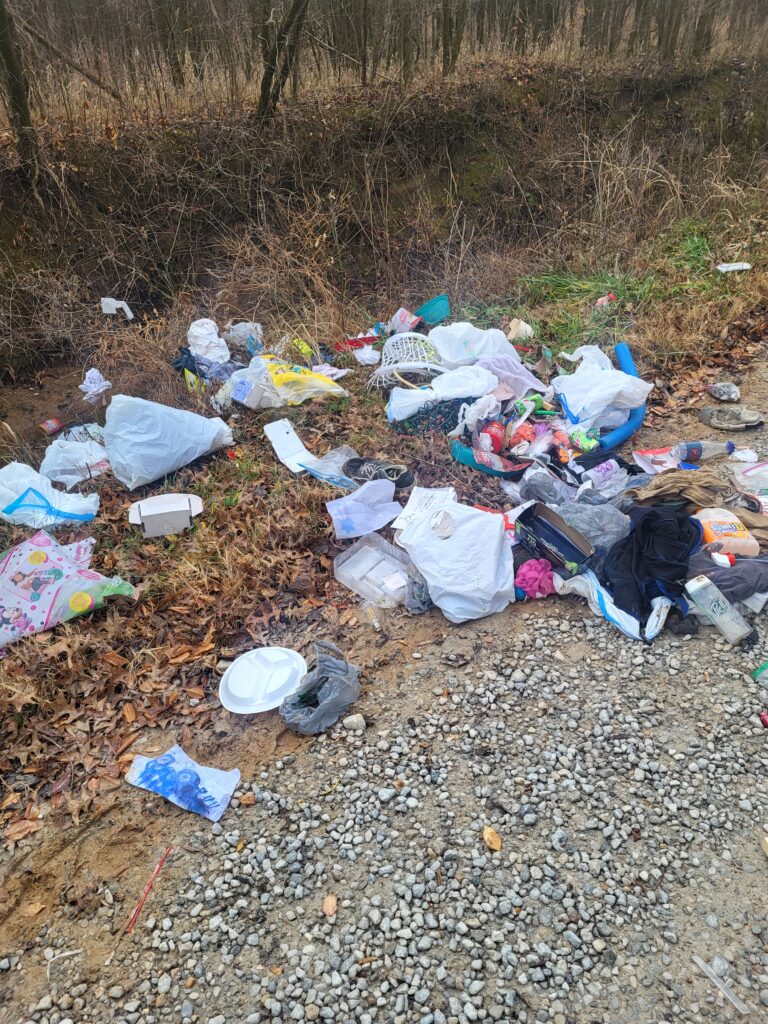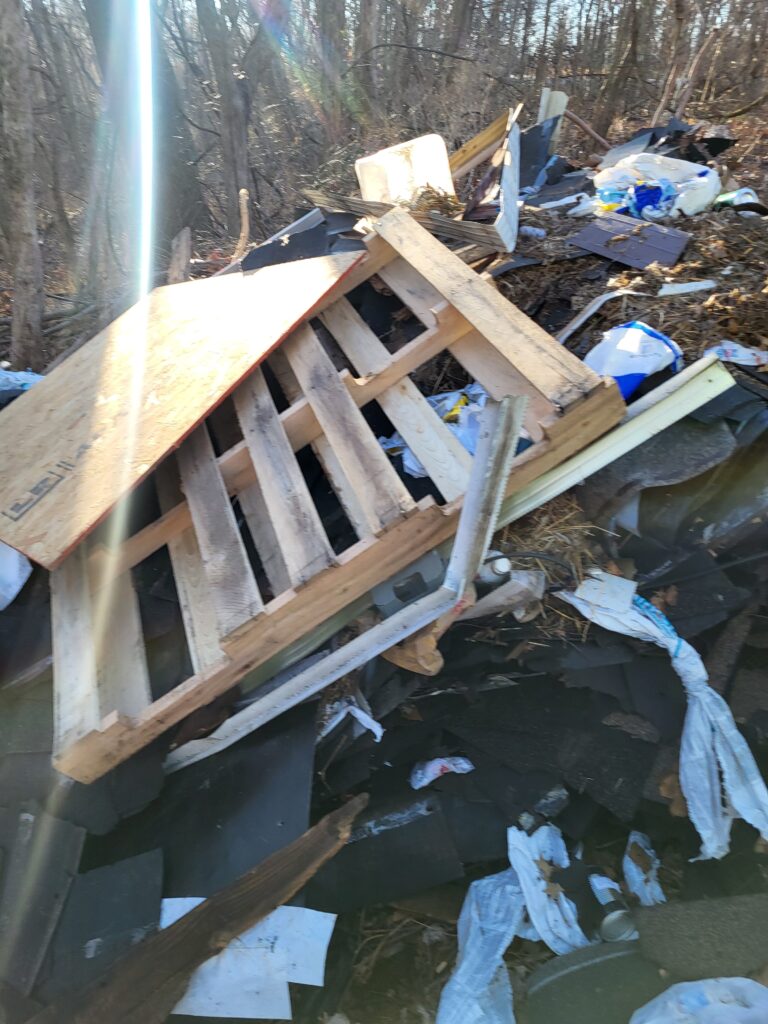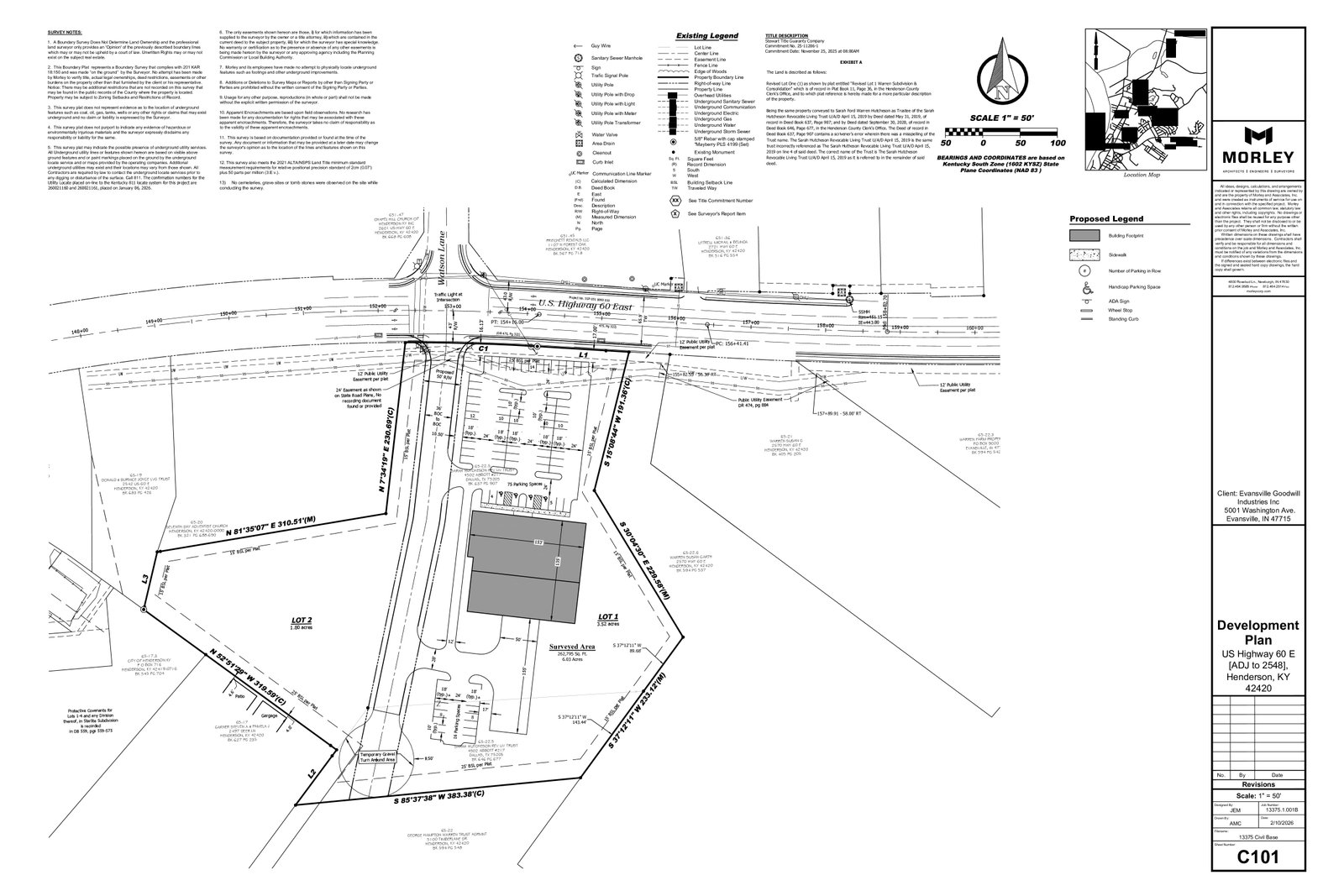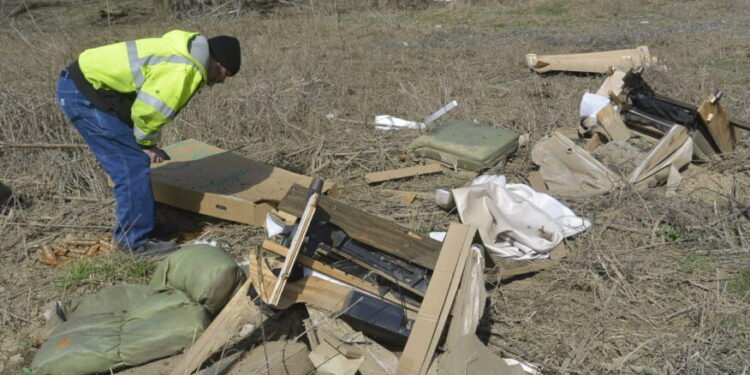Henderson County Solid Waste Coordinator Eric Higgs was looking at an illegal dump in Horseshoe Bend in late February when he received a phone call, coincidentally, from the Hendersonian about doing an article on illegal dumps in the county.
Higgs got in his car and drove to a site to meet the reporter, and then he drove back out to the rubbish he’d been surveying. On the drive back to the refuse he’d been surveying, Higgs encountered a small dump in the middle of the gravel road that had not been there—on the very same road—just 20 minutes previous.
Higgs was incredulous that someone would unload the futon cushion and what appeared to be a rubber air mattress there in “broad daylight.”
But that’s the type of struggle Higgs deals with regularly in his position. He said he drives county roads one day a week and most of the time finds an illegal dump. And they seem to be increasing, he said.
“There’s probably more out there I don’t know about because we have so many county roads,” Higgs said.
Illegal dumps, according to Judge-Executive Brad Schneider, have been a problem since he came into office, and at the March 12 Fiscal Court meeting, he said it’s getting worse.
“I’m fed up and much of the public is too,” he said.
Schneider suggested bolder initiatives to both curtail illegal dumps and apprehend those who dump illegally.
“We’re failing at this,” the judge said. “I’m willing to try anything, including offering $10,000 to any citizen who provides a tip that results in a conviction.
“What’s the downside?”
There may be no downsides in offering rewards, but history shows that obtaining the information needed to convict hasn’t been easy. County Attorney Steve Gold said that there’s probably been less than 10 charges brought since Schneider has been judge-executive and “maybe less than five.”
Meanwhile, the number of illegal dumps occurring across the county are becoming more frequent, according to officials.
Higgs said there are two types of dumps: household trash and contractor dumps, which are usually big and difficult to clean.
“We’ve been dealing with a lot more bigger dumps,” Higgs said.
Those bigger dumps are often a result of a home rehab project, such as a new roof. And based on addresses found on cardboard boxes in the dumped material, county officials say a high percentage of the dumped material come from Evansville and Owensboro.
In the March 12 Fiscal Court meeting, County Engineer Nick Stallings described the dumps as not coming from contractors, but subcontractors, or a “a sub of a sub of a sub.”
That’s one reason that it’s hard to cite people, said Sheriff Chip Stauffer. Though the name of the person whose address the debris is coming from may be shown on a label somewhere in the debris, that person says they hired someone else to take care of the refuse, he said. And then when the next person is found, he or she says they hired someone else to get rid of it, the sherriff said.
Local officials also believe that when some subcontractors are given money to take the debris to the transfer station, some of them instead decide to find a spot to dump the trash and pocket the cash. Another is that they arrived too late and found the transfer station closed, so they find a nearby hidden spot and get rid of the haul illegally.
According to Higgs, the hot spots are near the transfer station—on Green River Road #1 and on Old Henderson-Evansville Road within Horseshoe Bend. But there are many more, officials say.
The dumping is not only unsightly, but they can also attract pets and rodents and contain illegal drug paraphernalia and contaminants, such as chemicals, Stallings said.
They also cost the county money and time to clean, and Higgs said county employees from several departments are sometimes called in to help, taking them away from their normal duties.
And that’s if the county is allowed to clean them up. If the dump occurs on private land, the county by law can’t touch it, leaving the task to the landowner, who is rarely enthusiastic to tackle the task.
Schneider said he wants to get more aggressive in pursuing prosecution of dumping cases.
“Just knowing we’re serious about it may prevent some,” said Schneider, who along with other officials will determine the specifics of a method to use rewards to pursue prosecution and present their findings at a future fiscal court meeting.
Gold said the charge for illegal dumping is termed “criminal littering,” and it carries up to one year in jail and a $500 fine.
Meanwhile, Stauffer said he’s used $30,000 in the sheriff’s budget to purchase 10 cameras of the Flock camera brand. Three Condor cameras, which are live feed, and seven Falcon cameras, which are license plate readers, are being shipped to his office. He plans to put those in the most likely areas of dumping.
“It will at least give us a place to start an investigation,” the sheriff said.
Higgs said there have been nine or 10 big dumps this year.
“There’s not an easy solution to fix the problem,” he said. “It’s just a shame that people do this.”
When asked if it’s made him frustrated, he said, “Very much so. It really does.”


















